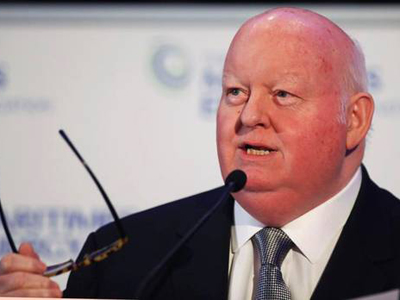 |
 | The Mike Duffy circus has come to town, the only
question really to be answered is, is what role will Duffy be? The
clown, or the ringmaster? It is destined to be three-ringed absurdity
of political mayhem, intrigue and conspiracy. The details will come
out in court, and are well known. The alleged bribe. The alleged false
expense reports. The alleged coverup. Round and round it will go. The
result of the trial, and the fallout from it, will become “Exhibit A”
for the cause of reforming the Senate. | | South Dundas - April 7, 2015 - The Mike Duffy circus has come to town, the only
question really to be answered is, is what role will Duffy be? The
clown, or the ringmaster? It is destined to be three-ringed absurdity
of political mayhem, intrigue and conspiracy. The details will come
out in court, and are well known. The alleged bribe. The alleged false
expense reports. The alleged coverup. Round and round it will go. The
result of the trial, and the fallout from it, will become “Exhibit A”
for the cause of reforming the Senate.
There is a clear need for senate reform. The Senate cannot be banished
like Ontario and Quebec did in 1867 and 1968 respectively. The call
for reform goes back much farther than the Meech Lake, or the
Charlottetown Accords. It goes back as far as Confederation itself.
The Senate was created to be a weak sibling to the House of Commons,
to placate provincial voices under Sir John A. Macdonald’s vision of a
stronger, centralist federal government. A strong federal government
with diminished provincial voices would help Canada avoid the pitfalls
of the United States, where states-rights were paramount to those of
the country. Those states-rights precipitated the American Civil War.
But the 21st Century is not the 19th. Old solutions of the status quo
are not always the best solutions. The Senate must be reformed, and it
must become a democratically-elected body. How it is done, who gets
how many seats, how the seats are elected, what role the Senate will
have, are all questions not be be answered in one column. That is
something that must take place over time. The questions have to be
acknowledged though, and have to be dealt with under three simple
ideas:
1 - The Senate of Canada must be democratically-elected by the people.
It can no longer be trusted to the executive branch of the federal
government to decide. It can no longer be a patronage reward to a
party-hack or notable, regardless of their party stripes.
2 - The Senate of Canada must have equal representation of the
provinces and territories. One jurisdiction cannot have an advantage
or disadvantage over another when it comes to seats. To do otherwise
creates just another chamber like the House of Commons, where the more
populous provinces can out-vote the others strictly by the numbers.
3 - The Senate of Canada must be effective. To be effective, it must
have a clear purpose. A chamber of sober second thought, yes, but
something else as well. There must be an effective function built into
the Senate, that the House cannot do.
To the third point, giving the Senate an effective function could mean
many things. Giving the Senate the power to table money bills would
make that body equal to the House of Commons and create deadlock, not
the best solution. Provincial and federal affairs though, would be a
great function for the Senate of Canada. Give the Senate the
constitutional power that bills that alter or affect the provincial
and federal relationship or role could only be tabled in the Senate.
This would create a clear function for the Senate. To vet the business
of the House of Commons, to provide that sober second thought, and
also to deal with provincial and federal affairs.
Elected Senators that represent their provinces in an equal and
effective manner is a 21st Century idea for Canada, one that is long
overdue. If any good can come out of the Duffy trial, let it be Senate
Reform, and not just a public flogging.
|